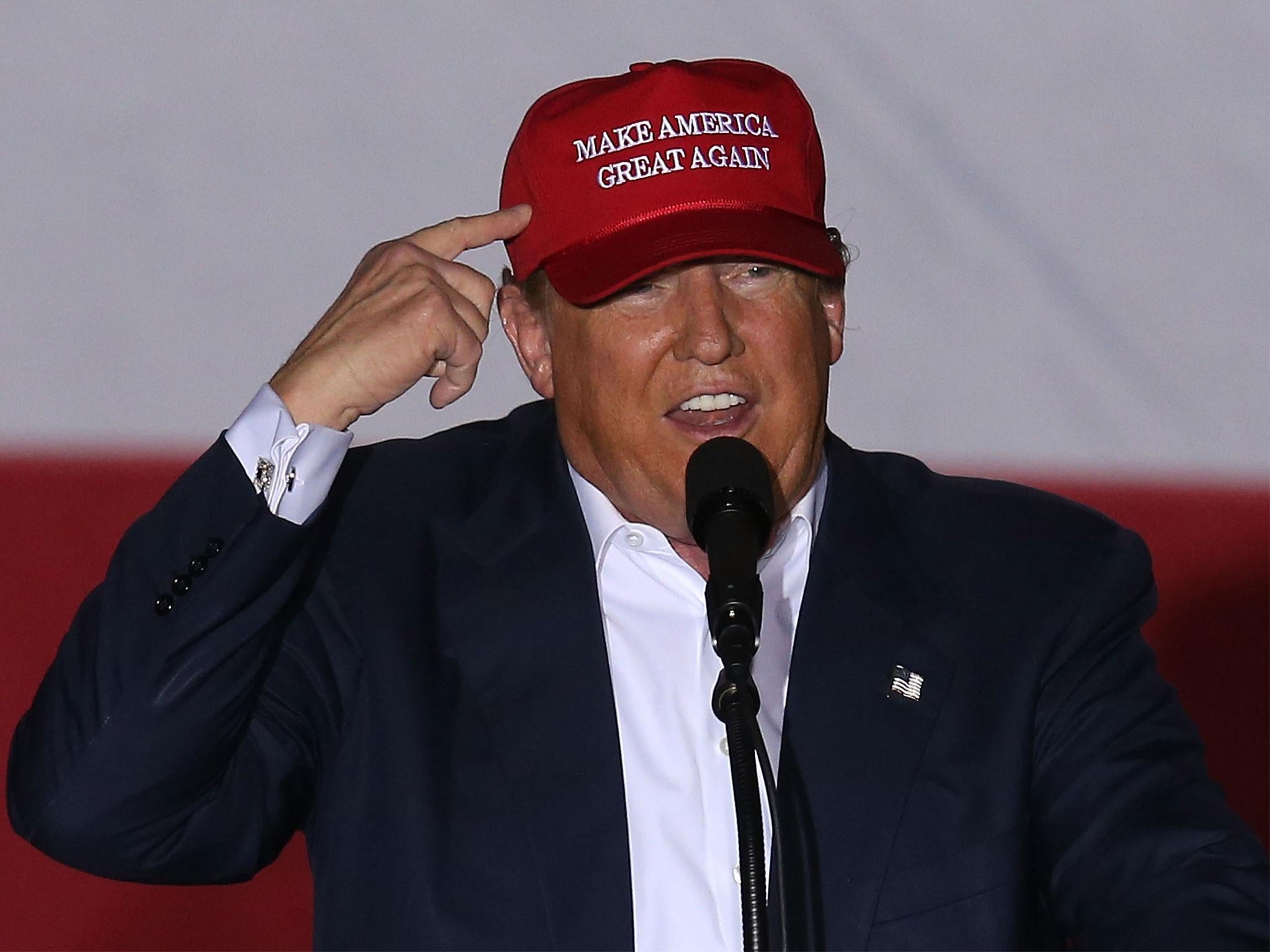Opioid crisis: Donald Trump's call for death penalty in drug dealing cases dubbed 'cynical'
President also announcing plan to reduce prescriptions by one-third and bolster awareness campaigns

Your support helps us to tell the story
From reproductive rights to climate change to Big Tech, The Independent is on the ground when the story is developing. Whether it's investigating the financials of Elon Musk's pro-Trump PAC or producing our latest documentary, 'The A Word', which shines a light on the American women fighting for reproductive rights, we know how important it is to parse out the facts from the messaging.
At such a critical moment in US history, we need reporters on the ground. Your donation allows us to keep sending journalists to speak to both sides of the story.
The Independent is trusted by Americans across the entire political spectrum. And unlike many other quality news outlets, we choose not to lock Americans out of our reporting and analysis with paywalls. We believe quality journalism should be available to everyone, paid for by those who can afford it.
Your support makes all the difference.Donald Trump has been accused of “cynically” appealing to his voter base with a drug strategy that calls for the death penalty for dealers.
It is the latest stage of the US President’s attempt to tackle an opioid crisis that saw 42,000 people killed by overdoses in 2016, the latest year for which data is publicly available.
Forty per cent of those deaths involved prescription drugs, according to the Centres for Disease Control and Prevention (CDC).
“Toughness” is how other countries deal with drug trafficking, Mr Trump said at a recent campaign rally, and his strategy will call for current laws to be used to allow capital punishment against traffickers “when it’s appropriate”, an administration official said.
Mr Trump also wants Congress to cut the amount of drugs needed to trigger mandatory minimum sentence rules for traffickers who knowingly distribute certain illegal opioids “to match the new reality of drugs like fentanyl, which are lethal in much, much smaller doses”, said his domestic policy director Andrew Bremberg.
The crisis appeared to be accelerating, the CDC suggested in a report earlier this month, with emergency department visits for opioid overdoses rising by 30 per cent between July 2016 and September 2017.
Currently, “the President thinks that the punishment doesn’t fit the crime” for dealers who “are bringing the poison into our communities”, an administration official told CNN. Mr Trump is due to announce his strategy on Monday afternoon at an event in New Hampshire.
Maria McFarland Sanchez-Moreno, executive director of the Drug Policy Alliance, said: “Trump is cynically using the overdose crisis to appeal to the worst instincts of his base, and pushing for measures that will only make the crisis worse.
“If this administration wants to save lives, it needs to drop its obsession with killing and locking people up, and instead focus its resources on what works – harm reduction strategies and access to evidence-based treatment and prevention.”
Current federal law allows for the death penalty in certain drug cases including murder related to a drug trafficking offence and murder committed during a drug-related drive-by shooting, according to the Death Penalty Information Centre, a nonprofit capital punishment monitor.
In addition to pursuing street dealers, Mr Trump’s plan directs the Justice Department to aggressively pursue criminally negligent doctors and pharmacies, and to take criminal and civil actions against opioid manufacturers that break the law.
The proposals will also seek to help those addicted to opioids by expanding access to treatment facilities and broadening education campaigns. They also aim to reduce prescriptions of opioids by one-third across the country within three years by promoting practices that reduce overprescription of the drugs in federal healthcare programmes.
Doug Berman, a law professor at Ohio State University, said it was not clear that death sentences for drug dealers, even for those whose products cause multiple deaths, would be constitutional. He said the issue would be litigated extensively and would have to be definitively decided by the US Supreme Court.
Leo Beletsky, professor of health sciences at Northeastern University, told The Washington Post: “The idea that we can ratchet up punishment and penalties of various sorts to address the supply is based on exactly zero evidence of the probability that this will work.”
Additional reporting by agencies
Join our commenting forum
Join thought-provoking conversations, follow other Independent readers and see their replies
0Comments